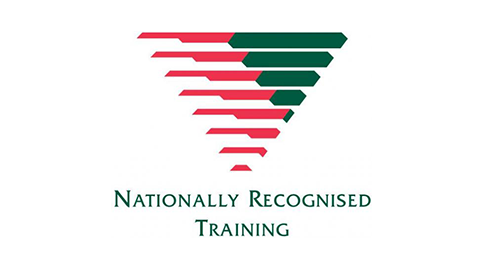CHC33021 Certificate III in Individual Support (Ageing and Disability)
About the course
CHC33021 Certificate III in Individual Support (Ageing and Disability) is a nationally recognised training qualification. This course is designed to provide students with the skills and knowledge to gain employment as a personal support worker in a residential aged care setting or in a client’s home or facility.
During the course, students will develop the skills and knowledge to work one-on-one with clients to maximise and maintain independence and build well-being.
Training and assessment will ensure learners are able to work legally and ethically with a diverse range of people, within the scope of practice for a support worker. Applying a holistic care approach and working healthily and safely in a direct care environment are key focuses throughout training and assessment of the qualification.
Looking for the right skills and knowledge to work in aged or disability care?
Learn how to:
- Work 1-on-1 with clients to maximise and maintain in dependence and well-being
- Work legally and ethically with a diverse range of people within the scope of practice for a support worker
- Facilitate the empowerment of older people, recognise healthy body systems, and meet personal support needs
Career Pathways
The Health Care sector is Australia’s largest employing industry and is projected to grow by approximately 15% over the next five years.
Job Prospects for this qualification may include:
- Disability Service Officer Worker
- Residential Support Worker
- Assistant in Nursing
- In-home Respite Care Worker
- Personal Care Giver and Support Worker
- School Support Officer (Disability)

Register Your Interest
Entry requirements:
There are no formal entry requirements for this course, however students are expected to have or be able to achieve written and spoken English skills to the certificate level of the course, or the ability to develop these skills whilst in training to meet the requirements of the qualification.
To allow our trainers to support your learning, students will need to complete a student profile, including language, literacy and numeracy indicators before their enrolment application is accepted.
Students will need to be able to achieve a clear police check and meet relevant state-based requirements for working with children or vulnerable people.

Delivery Method and Course Duration
Trainer-led Virtual Classrooms:
Several options available either during the day or evenings one session per week (including online activities and assessment).
A minimum of 120 hours work placement is required.
Blended Classroom Delivery – several options: :
- 1 day per week for 42 weeks face to face classroom over 12 months. Also includes: a minimum of 120 hours of work placement.
- 2 virtual classrooms per week for 42 weeks over 12 months. Also includes: a minimum of 120 hours of work placement.
A variety of delivery methods may be available on application.
Traineeships (including school-based):
Between 12 and 24 months.
Funding Available. Students may be eligible for funding for this qualification via various State-based initiatives, including Skills Assure State Funded Training (QLD Government), Smart and Skilled (NSW Government) and Skills First (Victorian and Commonwealth governments).
Contact us to find out more about what may be available in your State.


Book a FREE information session to:
- Learn more about the qualification - CHC33021 Certificate III in Individual Support (Ageing and Disability)
- Discover what kinds of jobs you can do when you finish your training.
- Find out if you are eligible for a funded place.
- Ask our trainers about the course.
Course Structure
9 core units and 6 elective units. 15 units required in total.
Nine (9) Core Units:
- CHCCCS031 Provide individualised support
- CHCCCS038 Facilitate the empowerment of people receiving support
- CHCCCS040* Support independence and well-being
- HLTWHS002 Follow safe work practice for direct client care
- CHCCOM005 Communicate and work in health or community services
- CHCDIV001 Work with diverse people
- CHCLEG001 Work legally and ethically
- HLTINF006 Apply basic principles and practices of infection prevention and control
- CHCCCS041 Recognise healthy body systems
Six (6) Elective Units::
- CHCPAL003 Deliver care services using a palliative approach
- CHCAGE011 Provide support to people living with dementia
- CHCAGE013 Work effectively in aged care
- CHCDIS011 Contribute to ongoing skills development using a strengths-based approach
- CHCDIS020 Work effectively in disability support
- CHCDIS012 Support community participation and social inclusion
*CHCCCS040 Support independence and wellbeing requires a minimum of 120 hours of work placement.
Note: Students undertaking a workplace traineeship may complete different electives which meet the needs of the workplace. This is decided on a case by case basis with agreement from the employer, the student and MAX
AQF Certification Outcome
Only students who successfully complete all required units of competency will be issued with an AQF Certificate III qualification. Students who complete one or more units, but do not complete the whole qualification will be issued with a statement of attainment for the completed units only.
Recognition of Prior Learning (RPL) and Credit Transfers (CT)
Recognition of prior learning (RPL) is a process that assesses a students competency - acquired through formal and informal learning - to determine if students meet the requirements for a unit of study. Students with previous skills, knowledge or experience are entitled to apply for RPL for a full qualification or individual units of competency. Students will be required to produce evidence and undertake assessment as part of the RPL process.
If students have previously completed a unit/s of competency and can provide valid evidence of AQF certification (issued by an RTO), they are eligible to apply for a credit transfer and would not be required to undertake further study for the unit.
Unique Student Identifier
It is mandatory for all students undertaking Nationally Recognised Training in Australia to have a USI, Unique Student Identifier.
You will need your USI in order to apply to enrol for training. Visit www.usi.gov.au for more information.
Referrals
If you would like to refer yourself or a customer, please use the form below. You may be required to submit forms of identification pending the funding requirements.
Frequently Asked Questions
Certificate III qualifications are considered industry standard qualifications for a given role or industry. A Certificate III is recognised nationwide and will give you the skills and knowledge to be able to work in that industry. It is often considered the equivalent of high school completion or year 12.
Certificate III is an entry-level qualification, more suitable for someone starting a career while Certificate IV is a more in-depth qualification than a Certificate III and is designed to prepare you for specialist roles or supervisory positions.
Career opportunities for graduates of CHC33021 Certificate IIII in Individual Support (Ageing and Disability) may include Disability Service Officer Worker, Residential Support Worker, Assistant in Nursing, In-home Respite Care Worker, Personal Care Giver and Support Worker and School Support Officer (Disability).
When at the appropriate point in your course, a Placement coordinator will identify a suitable employer. When looking at a placement, we will look for what is a good match for your career goals as well as your own personal circumstances.
Of course! Upon completion of the CHC33021 Certificate III in Individual Support (Ageing and Disability), you may go on to study Certificate IV, Diploma or Bachelor courses.
Yes, students can study both Ageing and Disability streams for our CHC33021 Certificate III in Individual Support (Ageing and Disability).
Why Study at MAX
At MAX, we understand that the right combination of learning, training and application of skills delivers better results. It's just a matter of deciding where you want to advance in your life.
We are a Registered Training Organisation (RTO) delivering vocational courses.